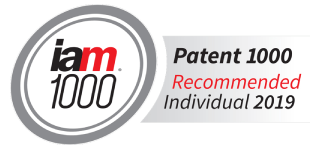Services
Practice Areas
Why SpencePC?
Clients choose SpencePC because we do outstanding work for fair compensation. Unlike our competitors, we encourage the use of alternative-fee agreements that more closely align our clients’ interests with the Firm’s interests. As a result, our clients pay only for the value they receive.
Our Philosophy
Our philosophy is simple: be outstanding and offer a unique value proposition. Hourly billing creates the wrong incentive for attorneys to work longer, not smarter. Instead, we encourage alternative-fee arrangements that reward success and efficiency. By doing so, our attorneys remain focused on obtaining the best results for our clients in the most cost-efficient manner.
Our Skills
We are attorneys who specialize in intellectual property and complex litigation. We hold science, engineering, and law degrees from the nation’s top schools. Following our education, each of us received years of additional training from prestigious, top-tier law firms. Our billing model ensures we remain focused on obtaining the best results in the most cost-efficient manner.
Associations & Accolades
Oculus Rift Patents that change the Virtual Reality Landscape
On March 28, 2016, virtual reality headset developer Oculus VR of Menlo Park, CA, announced on its official blog that it had begun shipments of its Oculus Rift headset. This immersive VR headset has been highly anticipated since a successful Kickstarter campaign wrapped up in September 2015, after raising 947 percent of its original goal after a little more than one month. Of the virtual reality options currently on the market, the Oculus Rift is arguably built upon one of the most technologically robust VR platforms. Oculus VR is a subsidiary of parent online social media company Facebook Inc. ( NASDAQ:FB )
Many have focused on how the Oculus Rift will enable immersive video gaming experiences but there are other valuable applications for the technology in a wide swath of industrial sectors. For example, architectural design applications such as IrisVR or Arch Virtual seek to use the Oculus Rift platform to bring computer-aided design from two-dimensions to three, improving how architects are able to communicate spatial design. The immersive nature of the Oculus Rift’s virtual reality environment is also proving attractive to behavioral researchers who want to use virtual reality immersion to treat psychological disorders such as post-traumatic stress disorder (PTSD) or anxiety. Three-dimensional (3D) design also has growing manufacturing applications in a world where 3D printing is rapidly becoming a larger market.
The post Oculus Rift Patents that change the Virtual Reality Landscape appeared first on SpencePC.











